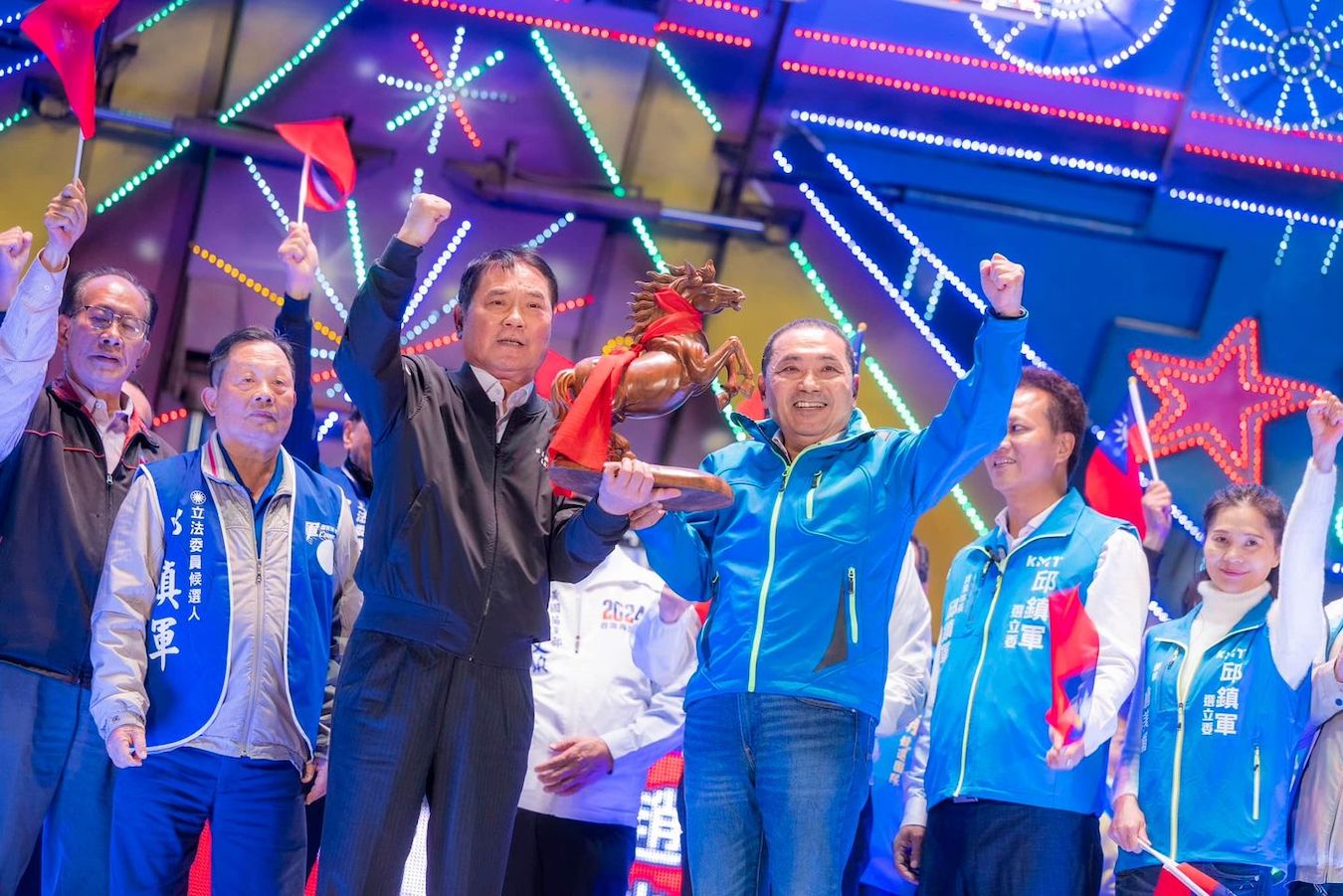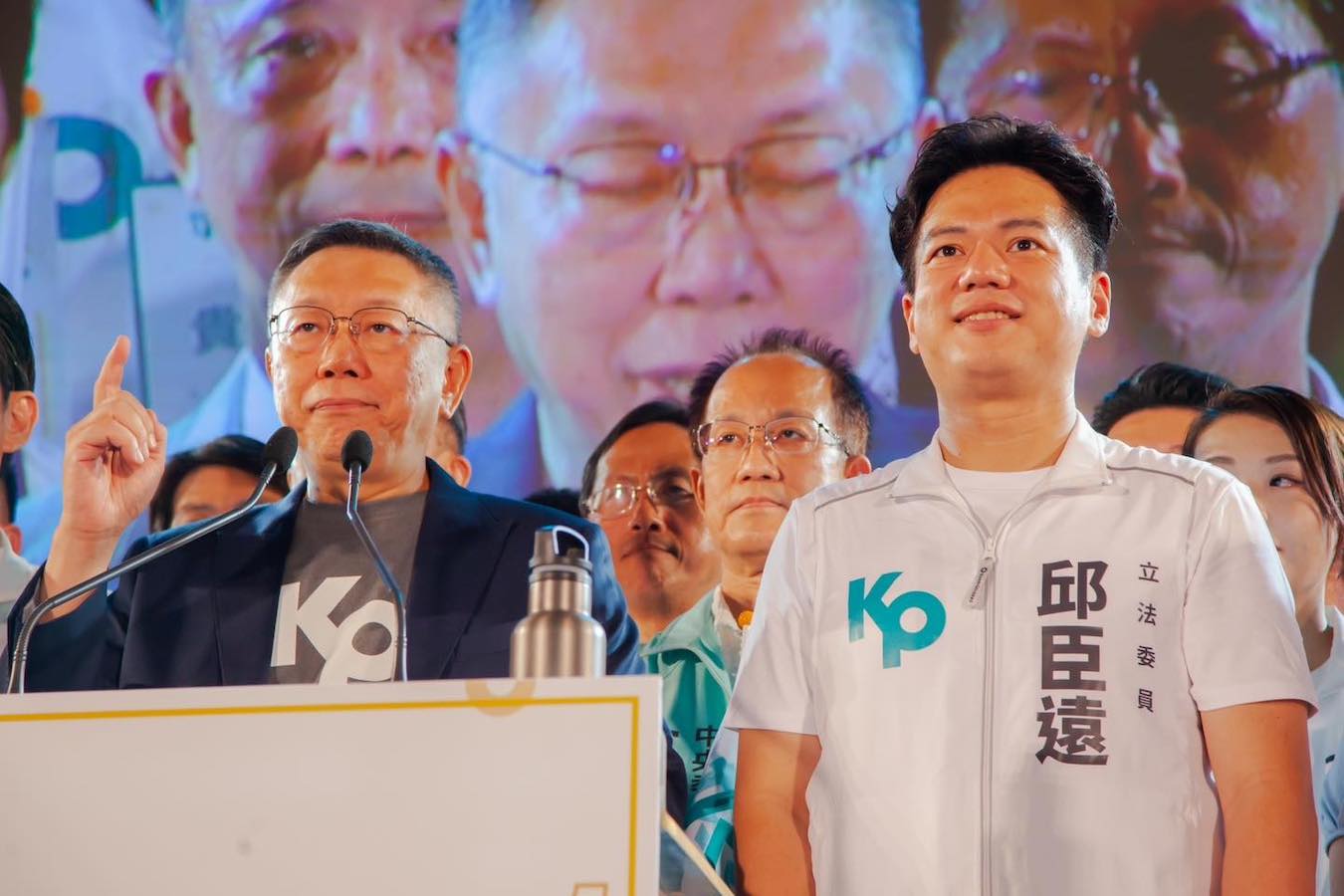by Brian Hioe
語言:
English
Photo Credit: Ko Wen-je/Facebook
IN A SURPRISE MOVE, TPP presidential candidate Ko Wen-je has stated that he intends to maintain the current foreign policy of President Tsai Ing-wen, except that he would place greater emphasis on exchanges with China. This seems to be an attempt by Ko to swerve after the embarrassing debacle in which he rowed with KMT presidential candidate Hou You-yi, as well as independent candidate Terry Gou on live television.
In the aftermath of the debacle, the KMT announced that pan-Blue media personality and ideological hardliner Jaw Shaw-kong would be Hou’s candidate. This seemed to make up for the fact that Hou has typically been seen as a light blue and relatively moderate KMT candidate, in that Hou has not been able to attract the support of the traditional KMT party base. The KMT continues to be suspicious of moderates in the party, particularly those with a benshengren background, with the view that they could potentially turn out to be turncoats down the line in the manner of Lee Teng-hui.
As for Ko, he would have made a natural pairing with Hou, in that he is also generally perceived as a lighter blue candidate. Ko has flirted at times with taking a more overtly pro-China stance, such as proposing to construct a bridge between Kinmen and Xiamen or proposing reviving the CSSTA, but his TPP has generally sought to distinguish itself from the KMT by framing itself as lighter blue in nature.
 KMT presidential candidate Hou You-yi (center-right). Photo credit: Hou You-yi/Facebook
KMT presidential candidate Hou You-yi (center-right). Photo credit: Hou You-yi/Facebook
Nevertheless, the KMT has made a hard pivot from aligning with another light blue candidate to aligning with a deep blue one. Along with the announcement that Jaw would be the KMT’s vice presidential candidate, it was also announced that the KMT’s 2020 presidential candidate, Han Kuo-yu, would be taking up the number one position in the KMT’s party list for the legislative elections. This implies that Han could become the speaker or president of the Legislative Yuan if the KMT holds the majority in the legislature after the elections.
With the KMT now pivoting toward the deep Blue end of the political spectrum, it may be that Ko seeks to reemphasize that he is a light blue candidate, given that this is the political space he can occupy. Hence his sudden claim that he intends to mostly consider the same cross-strait policies as the Tsai administration, never mind that he previously called for reviving the CSSTA–the Tsai administration more or less rode into power on the basis of political momentum after the Sunflower Movement, which broke out in 2014 against the KMT’s efforts to ram the CSSTA through the legislature. Ironically, Ko himself claimed to oppose the CSSTA in 2014, and was also a politician that rode into power drawing on momentum after the Sunflower Movement, though his political views have shifted decidedly in the time since then. Ko went from being a pan-Green politician to now being a pan-Blue politician, and even if he has built his political appeal on the claim to be independent from the two major parties, he was in talks with the KMT for a joint presidential ticket not too long ago.
At the same time, one notes that this is not the only case in which the pan-Blue camp has unwittingly framed its policies along similar lines to the Tsai administration. It has previously raised eyebrows on occasions when the KMT echoed the Tsai administration’s phrasing that Taiwan is already a sovereign and independent country by the name of the ROC, hence there is no need for Taiwan to declare independence.
 TPP presidential candidate Ko Wen-je (left). Photo credit: Ko Wen-je/Facebook
TPP presidential candidate Ko Wen-je (left). Photo credit: Ko Wen-je/Facebook
To this extent, an article published in Foreign Affairs by Hou You-yi in September during a trip to the US by the KMT presidential candidate mostly echoed Tsai’s foreign affairs policy. To an American audience, the KMT tries to come across as moderate but firm on China, even if the ideas offered are no different than Tsai’s. This contrasts sharply from the KMT’s domestic messaging, in which it tries to frame the Tsai administration as unnecessarily provocative of China.
In the absence of other moves, then, Ko may be grasping for straws in attempting to claim that he represents something no different than Tsai. The question is, however, if voters will believe this claim. Certainly, part of Ko’s appeal is that he proves difficult to pin down with any specific political position, with his support largely built based on his personality.
This has sometimes been termed to be Ko’s populist base of support. But in consideration of that Taiwanese identity trends continue to be on the rise with regard to young people, yet Ko seems to enjoy a younger support base than other candidates, it is likely that many of his supporters, in fact, do not know his political stances on such issues. As such, at least among his supporters, his sudden turnabout is already in line with expectations.

